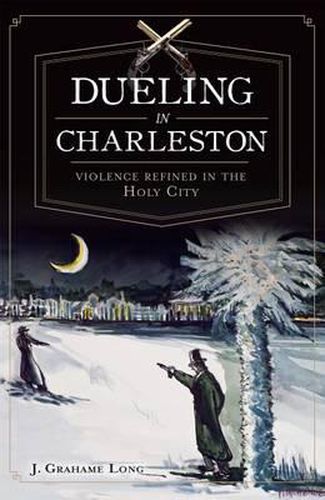Readings Newsletter
Become a Readings Member to make your shopping experience even easier.
Sign in or sign up for free!
You’re not far away from qualifying for FREE standard shipping within Australia
You’ve qualified for FREE standard shipping within Australia
The cart is loading…






Though no landmarks or memorials formally recognize dueling in Charleston, it remains a quintessential element of the Holy City’s legacy. Most upstanding locals nourished the duelist’s tradition, many going so far as to make it an integral part of their social lives. For a time, even the most casual character insults or slurs toward one’s moral fiber or family lineage invited a challenge, and almost always, the offended party was expected to retaliate. Thus, finding full expression in frequency and public acceptance throughout the Lowcountry, a gentleman’s duel was a crucial–albeit deadly–matter of taste and caste. For two centuries, Charlestonians dueled habitually, settling personal grievances with malice instead of mediation. Charleston historian J. Grahame Long presents a charming portrait of this dreadfully civilized custom.
$9.00 standard shipping within Australia
FREE standard shipping within Australia for orders over $100.00
Express & International shipping calculated at checkout
Though no landmarks or memorials formally recognize dueling in Charleston, it remains a quintessential element of the Holy City’s legacy. Most upstanding locals nourished the duelist’s tradition, many going so far as to make it an integral part of their social lives. For a time, even the most casual character insults or slurs toward one’s moral fiber or family lineage invited a challenge, and almost always, the offended party was expected to retaliate. Thus, finding full expression in frequency and public acceptance throughout the Lowcountry, a gentleman’s duel was a crucial–albeit deadly–matter of taste and caste. For two centuries, Charlestonians dueled habitually, settling personal grievances with malice instead of mediation. Charleston historian J. Grahame Long presents a charming portrait of this dreadfully civilized custom.